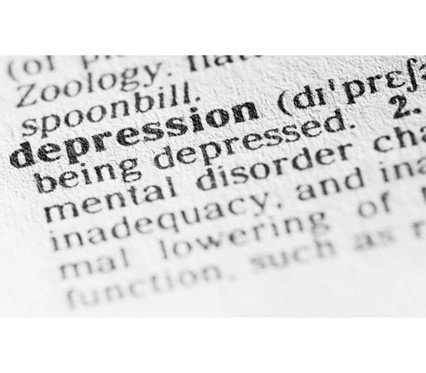Depression is not a singular experience; it encompasses a spectrum of emotions and symptoms that affect individuals differently. At Sound Mynd, we believe that understanding the various types of depression can help individuals and their loved ones navigate this complex landscape.
Here are 9 common forms of depression:
1. Major depressive disorder, formerly known as clinical depression (MDD): Characterized by persistent feelings of sadness, loss of interest, and low energy levels. Those affected might find it hard to engage in daily activities and experience changes in appetite and sleep patterns. 2. Persistent depressive disorder: Often referred to as dysthymia, this type of depression involves chronic feelings of sadness that last for at least two years. While less severe than MDD, its persistent nature can still impact an individual’s quality of life. 3. Bipolar disorder: This condition brings extreme mood swings, alternating between depressive episodes and manic highs. During depressive phases, individuals may experience the same symptoms as those with MDD. 4. Seasonal affective disorder (SAD): Linked to changes in seasons, SAD typically occurs during fall and winter when sunlight exposure is reduced. Symptoms resemble those of MDD, including low energy and mood changes. 5. Postpartum depression: New mothers may experience this after childbirth due to hormonal changes and emotional stress. Feelings of sadness, fatigue, and disinterest in the baby’s care are common.  6. Major depressive disorder with atypical features, formerly known as atypical depression: Unlike typical depression symptoms, individuals with this type might experience temporary mood improvement when positive events occur. However, their overall mood remains predominantly low. 7. Major depressive disorder with psychotic features formerly known as psychotic depression: Hallucinations and delusions are present alongside traditional depression symptoms. Those affected may believe they’re being punished or that they’re worthless. 8. Adjustment disorder with depressive mood: Triggered by a traumatic event or life change, this type of depression is temporary and usually improves as the situation changes. 9. Premenstrual dysphoric disorder (PMDD): An extreme form of premenstrual syndrome (PMS), PMDD brings severe mood swings, irritability, and physical symptoms before menstruation. Understanding these variations is vital for seeking appropriate treatment. From therapy and medication for MDD to lifestyle adjustments for SAD, tailored approaches make a difference. At Sound Mynd, our goal is to provide guidance, support, and resources, so individuals can find the help they need to navigate their unique journey through depression. Our licensed staff of care providers are available to provide you the support you need. Book An Appointment (Arizona, New Mexico, Connecticut, Texas, Montana & Wyoming)
6. Major depressive disorder with atypical features, formerly known as atypical depression: Unlike typical depression symptoms, individuals with this type might experience temporary mood improvement when positive events occur. However, their overall mood remains predominantly low. 7. Major depressive disorder with psychotic features formerly known as psychotic depression: Hallucinations and delusions are present alongside traditional depression symptoms. Those affected may believe they’re being punished or that they’re worthless. 8. Adjustment disorder with depressive mood: Triggered by a traumatic event or life change, this type of depression is temporary and usually improves as the situation changes. 9. Premenstrual dysphoric disorder (PMDD): An extreme form of premenstrual syndrome (PMS), PMDD brings severe mood swings, irritability, and physical symptoms before menstruation. Understanding these variations is vital for seeking appropriate treatment. From therapy and medication for MDD to lifestyle adjustments for SAD, tailored approaches make a difference. At Sound Mynd, our goal is to provide guidance, support, and resources, so individuals can find the help they need to navigate their unique journey through depression. Our licensed staff of care providers are available to provide you the support you need. Book An Appointment (Arizona, New Mexico, Connecticut, Texas, Montana & Wyoming)


Recent Comments